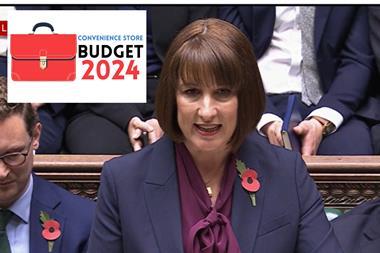Policymakers are being urged to take note of a new five-point “lifeline” plan to help keep England’s small business sector afloat.
The burden of rising rates bills and ever-increasing rents, coupled with soaring employment costs and pressure from online retailers and out of town shopping centres, were creating “a perfect storm” in UK town centres, the Federation of Small Business (FSB) said.
FSB has set out new recommendations in five key areas, including business rates, parking and safeguards around access to cash and banking.
On business rates, a raft of interventions have been reccomended for the English system, including a dedicated business rates appeals route for small businesses, focussing on speed and compliance and avoiding charges and penalties.
As well as a freeze on rates from April 2019, when the next inflation-linked rise is due, the FSB is also calling for a £1,000 business rates discount for local shops, cafes, restaurants and pubs, to provide a shot in the arm for high streets.
Government should also look to introduce a type of ‘London weighting’ to Small Business Rate Relief (SBRR) to help struggling firms, by increasing thresholds for intensely pressured areas.
The concept could also be expanded to other areas most affected by the last revaluation, and whose temporary relief is also now falling away, it said.
FSB is also calling for the rates relief rule that penalises small business expanding into additional premises, to be abolished.
Current rules mean most small firms lose their existing SBRR when they move into a second property. The relief should be changed to a personal threshold for a business owner, so that it can apply to multiple properties owned by one business, below the combined value of £15,000, the FSB said.
On parking, the FSB is calling on local authorities to provide more free parking to encourage shoppers back to the high street all year round, making sure any proposed increases to charges are assessed for their impact on town centres.
Other reccomendations include a full market review of access to cash and digital payment methods by government and the Payment Systems Regulator.
The Post Office network should also be protected, with every branch providing a reliable, efficient and standardised core of business services, the FSB said.
An increase in funding for local road maintenance, fairer distribution of government cash on major road network projects and improved local transport would also benefit the sector, by ensuring that routes into town centres were in a good state of repair for both businesses and consumers, it added.
FSB national chairman Mike Cherry said: “It’s clear the pressure is mounting. Spiralling business rates and ever-increasing rents are piling on to small retailers, hospitality businesses and others on the high street.
“The high cost of town centre parking, poor infrastructure, the blight of potholes and the loss of vital banking services are also ramping up the pressure.
“We know that small business owners are resilient and are used to adapting to market forces. But we want to see government and local authorities come together to look at real solutions to these issues so that our high streets are not only able to survive, but to thrive.
“We’re not suggesting there’s a quick fix for the high street, but it’s clear something needs to be done.
“We’re calling on the government to take control of the situation and, working with local authorities, take the pressure off struggling high street businesses.
The Association of Convenience Stores (ACS) welcomed the plan.
ACS chief executive James Lowman said: “The FSB is right to look at reform of the business rates system, especially calls to re-introduce the £1,000 rate relief fund for high street businesses.
“It is clear that the way business rates are calculated needs to be rebalanced, with the primary concern for our members being the way that the current rates system acts as a barrier to investment.
“We are calling on the government to help retailers invest in and improve their stores by allowing them to offset that investment against their rates bills.”




























No comments yet